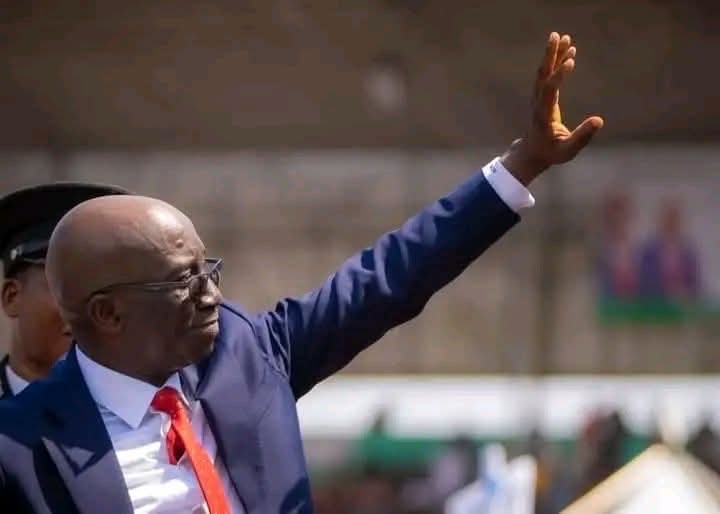The African Union (AU) has become the second regional grouping to be admitted to the Group of 20 leading industrialised and developing nations as a full permanent member, Indian Prime Minister Narendra Modi announced Saturday at the start of the two-day G20 leaders’ summit in Delhi.
The G20 is a forum comprising 19 countries with some of the world’s largest economies, as well as the European Union (EU) says the Financial Advisor Summit.
The countries are Argentina, Australia, Brazil, Canada, China, France, Germany, India, Indonesia, Italy, Japan, Mexico, Russia, Saudi Arabia, South Africa, South Korea, Turkey, the United Kingdom (UK), and the United States. Spain is invited as a permanent guest.
With its admission at this year’s summit, the AU has become the group’s first new member since its inception.
Every year, the leaders of G20 members meet to discuss mainly economic and financial matters and coordinate policy on some other issues of mutual interest. Examples include when the G20 discussed how to address a covert Iranian nuclear plant at the 2009 summit and when the forum debated how to administer a partial cease-fire in Syria at the 2017 summit.
The G20 is not a permanent institution with a headquarters, offices, or staff. Instead, its leadership rotates on an annual basis among its members, its decisions are made by consensus, and implementation of its agenda depends on the political will of the individual states.
Together, the nations of the G20 account for around 80 percent of global economic output, nearly 75 percent of global exports, and about 60 percent of the world’s population.
Going by these figures, the G20 Forum would be a grand stage for the developing countries of the AU to hobnob and network for trade, foreign direct investment opportunities and other openings for enhancement in areas including the economy, education, health and political stability, among others.
The G20 was formed in 1999, in the wake of the Asian financial crisis, to unite finance ministers and central bankers from 20 of the world’s largest established and emerging economies.
A decade later, at the height of the global economic crisis, the G20 was elevated to include heads of state and government. Many experts credit the G20 with quick action; former CFR fellow Stewart Patrick said the group “rescued a global financial system in free fall.”
In 2008 and 2009, G20 nations agreed to spending measures worth $4 trillion to revive their economies, rejected trade barriers, and implemented far-reaching reforms of the financial system.
Experts point out that the G20’s membership is still more representative of the current international balance of power than blocs of countries formed earlier, such as the G7. Several rising democracies, including Brazil, India, and Indonesia, belong to the G20, as do other influential autocratic countries, such as China, Russia, and Saudi Arabia.
Economic and financial coordination remains the centerpiece of each summit’s agenda, but issues such as the future of work, climate change, and global health are recurring focuses as well. Broader agenda became more common in the decade following the global financial crisis, when the G20 was able to turn its attention beyond acute economic crisis management.
The 2023 summit has dealt on issues facing lower-income countries in the so-called Global South. These include rising debt levels, persistently high inflation, depreciating local currencies, food insecurity, and increasing severe weather events associated with climate change.
G20 members face divisions over how to address the economic shocks disproportionately affecting emerging economies. The energy crisis resulting from the war in Ukraine has led to food scarcity and soaring energy prices, as well as inflationary pressures that have engendered a stronger US dollar at the expense of depreciating currencies in emerging economies.
Many experts stress the substantial effects of personal relationships among leaders on the creation of foreign policy, say the Financial Advisor Summit.
By gathering so many leaders together, G20 summits offer rare opportunities to develop such relationships and recast bilateral ties.
African leaders have impatiently challenged the framing of the continent as a passive victim of war, extremism, hunger and disaster that’s pressured to take one side or another among global powers.
With full G20 membership, the AU can represent a continent that’s home to the world’s largest free trade area. It’s also enormously rich in the resources the world needs to combat climate change, which Africa contributes to the least but is affected by the most.
The African continent has 60 percent of the world’s renewable energy assets and more than 30 percent of the minerals key to renewable and low-carbon technologies. Congo alone has almost half of the world’s cobalt, a metal essential for lithium-ion batteries, according to a United Nations report on Africa’s economic development released last month.
African leaders are tired of watching outsiders take the continent’s resources for processing and profits elsewhere and want more industrial development closer to home to benefit their economies.
Membership of the G20 should open doors that address the continent’s hopes, prospects and challenges in these areas.


